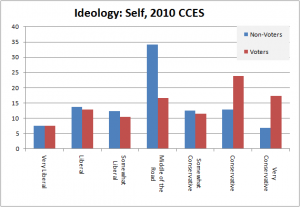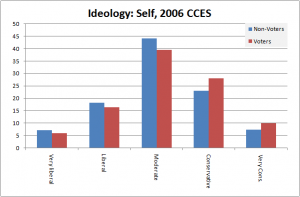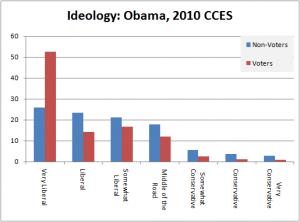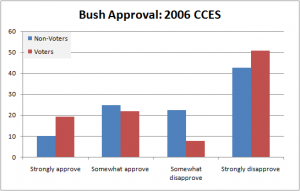For someone who likes politics and devotes the better share of his life to the subject I sure do a great job of ignoring significant aspects of it on occasion. This bothers me. I feel like I should be biting my nails and paying rapt attention to the "negotiations" over the debt ceiling, but I honestly could not care less. This situation is a good example of how Washington politics are starting to feel a lot like Kabuki theater and very little like a functional, representative, multiparty government. We all said six months ago that Obama would cave on Social Security and Medicare, then cave on demanding tax increases, and then cave on any other damn thing the GOP dreams up at the last second and demands with a hearty "Ha ha, what else can we make this idiot agree to?" laugh.
So, here’s where we are on the debt limit discussions: Democrats have agreed to large spending cuts, but are holding out for doing something about:
a rule that lets businesses value their inventory at less than they bought it for in order to lower their tax burden, a loophole that lets hedge-fund managers count their income as capital gains and pay a 15 percent marginal tax rate, the tax treatment of private jets, oil and gas subsidies, and a limit on itemized deductions for the wealthy.
And Republicans walked out.
Think about it. There’s a significant chance that failing to raise the debt limit could provoke a renewed financial crisis — and Republicans would rather take that chance than allow a reduction in tax breaks on corporate jets.
What this says to me is that Obama cannot, must not, concede here. If he does, he’s signaling that the GOP can extract even the most outrageous demands; he’s setting himself up for endless blackmail. A line has to be drawn somewhere; it should have been drawn last fall; but to concede now would effectively mean the end of the presidency.
Let's check back next week to recap how he caved on all that and more. Krugman's comment, of course, overlooks the important reality that even if Obama "draws the line" here he has already given up so much that only in Mushy Centrist Fantasy Land could he conceive of this as anything but a total, humiliating defeat. "Woo! We drew the line at tax breaks on corporate jets!" isn't exactly going to impress anyone. He turned the debt ceiling negotiations, if they can be so called, into yet another round of buying into right-wing talking points and cheerleading austerity in the vain quest to impress everyone with how Bipartisany he can be. Great.
Even Kevin Drum, the Obama-worshipping proponent of the 12th-level chess theory (that Obama's constant caving and Eisenhower Republicanism is actually some kind of complex, byzantine strategy to achieve liberal policy outcomes), has thrown in the towel and admitted that a focus on cutting spending is in fact exactly what Obama and Harry Reid want. He pulls a good quote from Yglesias:
There was a brief opportunity for the President to dig in his heels and simply refuse to compromise. Then the debate rapidly would have become “can John Boehner round up the votes in his caucus necessary to avoid a default.” Instead, the White House conceded the unprecedented point that even though Boehner and Obama agreed about the desirability of raising the debt ceiling that the White House should make concessions to the Speaker in order to obtain it.
Let's recap the Barack Obama school of governing and negotiation. First, you get the Republicans to admit that it's totally unthinkable and utterly insane to let the government default. Second, agree that 50% of the problem – the entire revenue side – is off the table. Third, let the GOP beat concession after concession out of you by bluffing about default. Fourth, get "concessions" from the GOP – in this case, I'll bet you 0 on Obama obtaining "defense cuts" that amount to snipping a few staplers and pencils from the Pentagon budget – that hand the Republicans a ready-made "He's a-cuttin' the Army while our brave men and women are in harm's way!!
buy elavil online buy elavil no prescription
" talking point. Fifth, go to the electorate in 2012 with the message that sure, I and the rest of the Democrats signed off on hacking up Social Security and Medicare, but, um, the Republicans wanted to cut them a little more than we ultimately allowed. That sounds like a winner, right?
buy wellbutrin online buy wellbutrin no prescription
The Mighty Democrats fought bravely to make sure that your benefit cuts would be slightly smaller.
Good luck with that, idiot. This presidency has been like watching a man commit suicide for three years. At first you're in a frenzy yelling "Stop!
online pharmacy neurontin best drugstore for you
Don't do that to yourself!" but after a while you just want him to hurry up and get it the hell over with already.
online pharmacy azithromycin best drugstore for you





